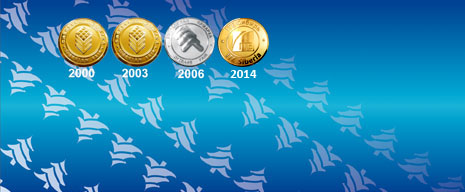 |
 |
No. 4 (2022)
Value-Semantic Priorities of the Formation of a Unified Scientific and Methodological Space in the Aspect of Patriotic Education and Personal Development: Axiological and Regional Аpproaches
This article focuses on axiological approach to the problem of scientific and methodological support of the national project "Education” in terms of the formation of functional literacy of a modern student in the frameworks of the regional unified scientific and methodological spaces.
Dominant Values of Current International Language Learning & Training: Methodology and Technology
The problem area of this research covers the most crucial aspects of national education, dominant values as cultivation of educational development strategies and pedagogical tactics in the regional school educational environment in regard to the requirements of the updated Federal State Educational Standard considering national culture, native language, authentic communication of teacher and student to fulfill the prior goal of the cultural mission of both domestic education and the cultural - creating possibilities of international language education to expand the boundaries for modern s
Cross-cultural Component of Trigger Warnings in Higher Education
Current studies show an increase in conflict situations in school systems around the world, caused by the clash of cultural traditions. For effective work, a teacher today needs to have cross-cultural competence, including the ability to take into account the cultural peculiarities of students. The paper examines the trigger warning tool from a pedagogical and cross-cultural point of view, and proves its culturally specific nature.
Reading Literacy of the Teacher in the Conditions of Implementation of the Updated Fses of General Education
Professional discussion of the topic of developing the functional literacy of teachers, which makes it possible to productively solve the problems of mastering the planned results of the main educational program at all levels of school education, has ceased to be a holy war issue and has become one of the main pedagogical subjects of recent times.
New Educational Elements f the Profile Course “Physics”, Section “Quantum Physics” of General Secondary Education
The modern development of the economy of the Russian Federation requires a high quality of secondary general education, a conscious choice by graduates of schools of vocational technical and technological education. Analysis of the Model Program and the Work Programs of specialized schools revealed the problems of forming a physical picture of the world. The object of the study is the process of teaching physics, the subject of the study is the educational content and technological methods of mastering students’ knowledge in the section Quantum Physics.
The Experience of Using the Case Method In Biology Lessons as a Way to Form Natural Science Literacy
The formation of scientific thinking is an integral component of the educational process. The formed worldview determines behavior. The content of academic disciplines needs constant interdisciplinary interaction. On the example of a case method, the interaction of students with biology and ecology (synecology) is shown. The paper presents scientific material for teachers of biology, ecology, which can be used in the classroom.
Causes of University Students’ Failure in Teaching Foreign Language With Moocs
This article examines the factors why university students do not complete massive open online courses when they are taught a foreign language. The study summarizes the results of experimental work on teaching a professionally oriented foreign language to students of a non-linguistic university using massive open online courses. The reasons for not completing a MOOC by university students when teaching a foreign language are revealed. Methodological recommendations to increase the proportion of students completing training in MOOCs are proposed.
Formation of Functional Literacy in Practical Classes in a Foreign (English) Language
This article is devoted to the process of formation of functional literacy of students in English lessons. Based on the existing regulatory framework, the authors define the concept of functional literacy. It describes the structure of functional literacy, its relationship with key competencies, including the influence of a foreign language on the formation of functional literacy. One of the tasks that a foreign language teacher faces is the formation of functional literacy in practical lessons.
Experience in Creating Posters at Foreign Language Lessons in the 7th Grade of Secondary School
This article focuses on the issue of creating the posters by secondary school students at foreign language lessons. It presents the theoretical justification of the concept of “poster”, focuses on the possibilities of teaching intensification, strengthening the use of visual methods while creating posters. Particular attention is paid to the methods of students’ self-work with the large amount of information, as well as the processing and presenting the extensive material in a concise poster format.
On the Educational Potential of Military-Historical Board Games on the Example of Strategic Board Game «The Road to Victory. Battle for Moscow»
This article discusses the potential of strategic board games in the educational process in history classes on the example of a strategic board game "The Road to Victory. Battle for Moscow". The article analyzes the game, identifies technical and methodological problems arising in its use, notes the strengths and weaknesses of the educational potential of the game content. The authors focus on the problem of matching the gameplay of the board game "The Road to Victory. The Battle for Moscow". and historical reality.
Сайт поддерживается в Новосибирском институте повышения квалификации и переподготовки работников образования и является участником Новосибирской открытой образовательной сети